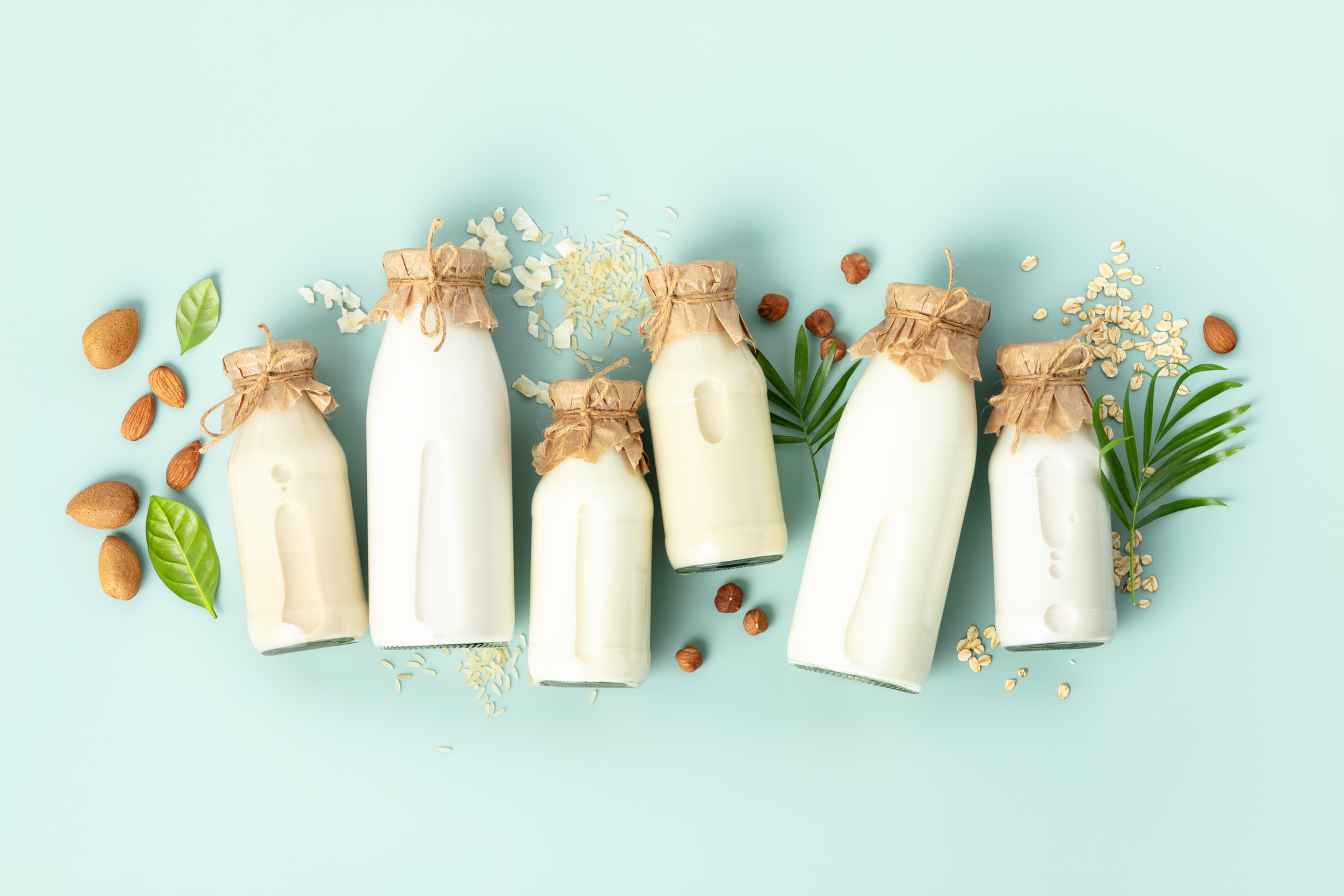Get Easy Health Digest™ in your inbox and don’t miss a thing when you subscribe today. Plus, get the free bonus report, Mother Nature’s Tips, Tricks and Remedies for Cholesterol, Blood Pressure & Blood Sugar as my way of saying welcome to the community!
Are plant-based milks all they’re cracked up to be?

Over the past decade, more studies have shown that increasing plant protein in our diet can improve heart health and lengthen lifespans.
However, all might not be so rosy — at least when it comes to plant-based milks.
In fact, according to recent research, if you’ve switched from cow’s milk to almond, oat, soy or rice drinks, you might not only be losing valuable nutrients — you could also be pouring compounds linked to cancer into your body.
Here’s why…
Lack of protein and amino acids
A team of scientists at the University of Copenhagen set out to compare cow’s milk nutritional and safety profiles to plant-based milk.
Their concern?
While milk can basically be considered a finished product when it comes out of a cow, oats, rice, soy and almonds need extensive processing to convert them into drinkable beverages. Adding insult to injury, plant-based milks also have to undergo Ultra High Temperature (UHT) treatment, a process widely used for long-life milks across the globe.
And as it turns out, their worry was for good reason…
According to the scientists, UHT treatment triggers something they call a “Maillard reaction.” This is when high heat leads to a chemical reaction between protein and sugar, essentially destroying the nutritional quality of the proteins in the product.
In terms of plant-based milk, that process reduces protein in a product already lacking in that department.
“Most plant-based drinks already have significantly less protein than cow’s milk. And the protein, which is present in low content, is then additionally modified when heat-treated. This leads to the loss of some essential amino acids, which are incredibly important for us. While the nutritional contents of plant-based drinks vary greatly, most of them have relatively low nutritional quality,” explains Professor Marianne Nissen Lund, the study’s lead author.
The study showed that while cow’s milk contained 3.4 grams of protein per liter, plant-based milks rang in at just 0.4 to 1.1 grams.
Cancer dangers?
In addition to reducing protein levels, the researchers found that UHT treatment also results in the generation of new compounds in some plant-based milks.
“The chemical compounds that result from Maillard reactions are generally undesirable because they can increase inflammation in the body. Some of these compounds are also linked to a higher risk of diabetes and cardiovascular diseases,” says Lars Ove Dragsted of the Department of Nutrition, Execercise and Sports.
And they can even be linked to cancer…
In fact, the researchers found that almond and oat milk contained acrylamide, a carcinogen also found in bread, cookies, coffee beans and fried potatoes, including French fries.
They say that while the levels of the compound were low enough not to pose a danger from simply drinking the milk, you could be at risk when you add up possible consumption from all these other sources.
The researchers also discovered two additional cytotoxicity and cancer-promoting compounds in several plant-based drinks — α-dicarbonyl compounds and hydroxymethylfurfural (HMF).
Considerations for choosing milk that’s right for you
So, while a plant-based diet can be a good choice, it seems that when it comes to milk, good old-fashioned whole cow’s milk offers better nutrition.
“We definitely need to consume more plant-based foods. But if you’re looking for proper nutrition and believe that plant-based drinks can replace cow’s milk, you’d be mistaken,” says Department of Food Science professor Marianne Nissen Lund, the study’s lead author.
But when it comes to cancer, diary may go either way…
According to MD Anderson Cancer Center, dairy affects cancer types differently.
Consuming dairy may increase prostate cancer risk because dairy increases circulating levels of IGF-1, a hormone known to promote prostate cancer growth.
Other research shows dairy may help prevent the development of breast and colorectal cancers.
So the decision whether to go dairy or plant-based may be a personal one.
In the US, most milk found in the refrigerated section undergoes a standard pasteurization process. That involves heating milk to at least 161°F (72°C) for at least 15 seconds, followed by rapid cooling.
However, be aware that shelf-stable cow’s milk, which has a longer shelf life, undergoes the same UHT pasteurization as plant-based milk.
Editor’s note: Discover how to live a cancer prevention lifestyle — using foods, vitamins, minerals and herbs — as well as little-known therapies allowed in other countries but denied to you by American mainstream medicine. Click here to discover Surviving Cancer! A Comprehensive Guide to Understanding the Causes, Treatments and Big Business Behind Medicine’s Most Frightening Diagnosis!
Sources:
How chemical reactions deplete nutrients in plant-based drinks — ScienceDaily
5 things to know about dairy and cancer risk — MD Anderson Cancer Center












